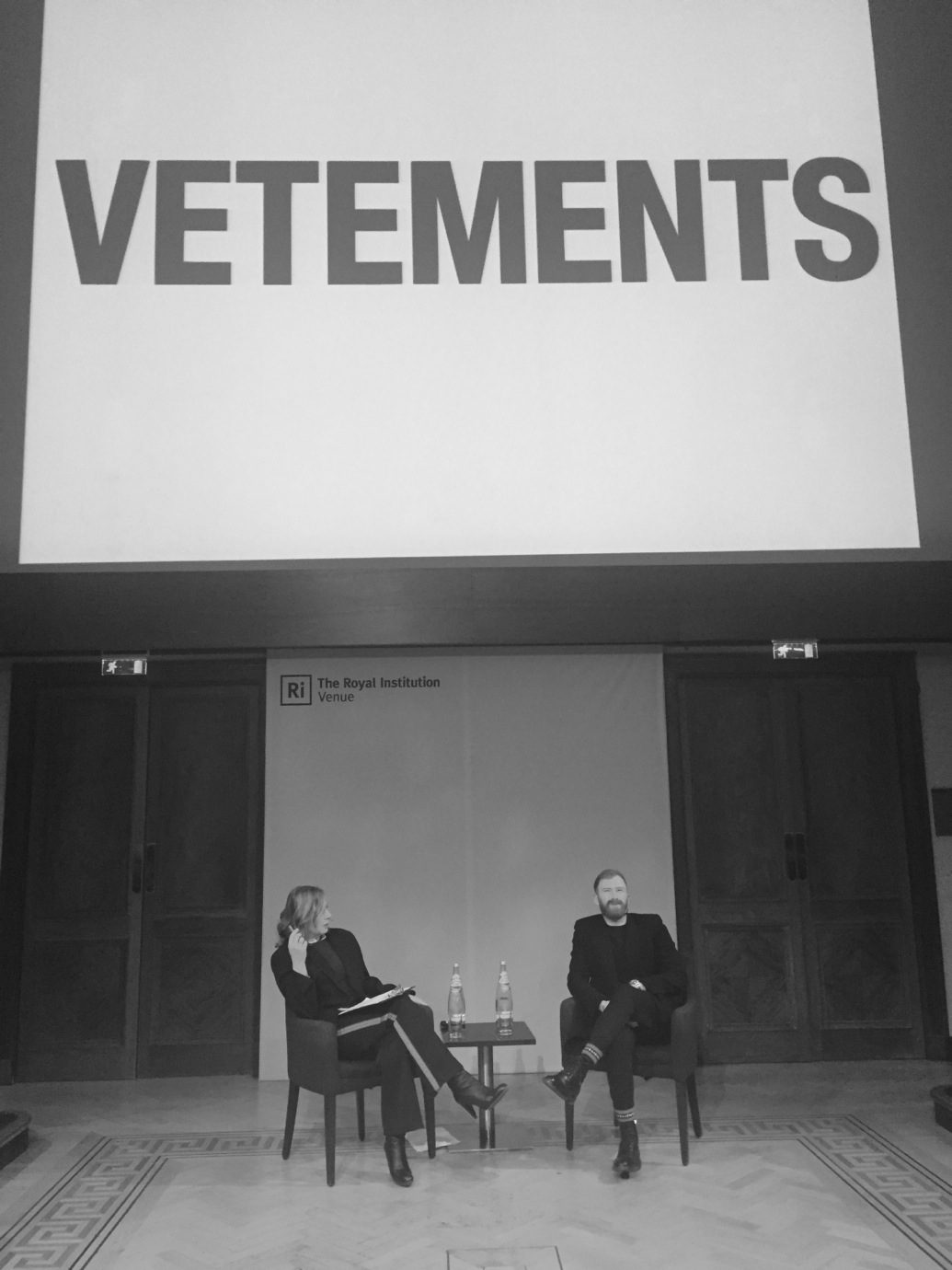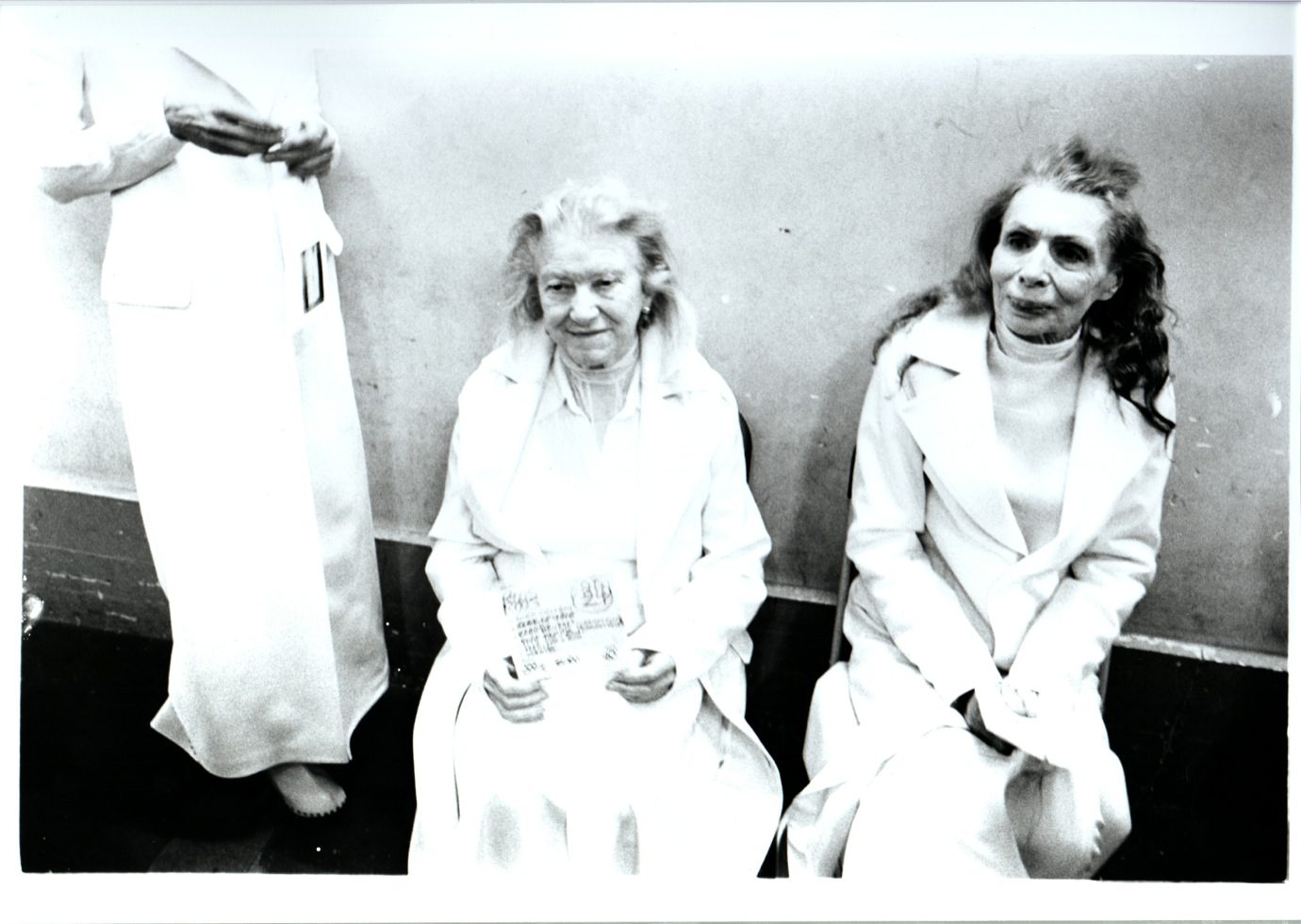Olya Kuryshchuk: There are a few areas that I’d like to discuss with you. I’m really interested in your personal trajectory, because it’s not often that you meet women who have an incredible career like yours. What do you think is the biggest challenge for women in leadership positions, and how have you seen the world change in this respect during the past 30 years?
Daniela Riccardi: I do see change, but sometimes I wish the change was bigger. We’ve been pretty good at that within the organisations that I’ve happened to manage. I think we’re very good at Moleskine, where we have a lot of women in senior positions. I invest myself in making sure that we pay particular attention to women in their career, so that they don’t have to make the choice between working and having children. I managed to do it because I had bosses that helped me to manage; there was no problem in having children. Multinational companies tend to have a bigger culture in terms of diversity, particularly gender diversity. That made it easier for me. It also made it easier that I married a man who liked that life, and enjoyed living and raising our children in different places. These things are important and I keep them in mind as I work with my organisation to make sure that also our women, in particular young women, know how to manage that. That they don’t think there is no space for them to grow because they have a child and they cannot move. I try to create career journeys for them, so that they can grow even within that moment of their life.
“It was important for me to be assured by my bosses that if I went on maternity leave that I wouldn’t be left alone and lose my position and respect within the company.” – Daniela Riccardi
How does that work practically? If somebody wanted to build that into their company, would it be about providing emotional stability and a guarantee that they can return after maternity leave? Within the fashion industry, it’s often the case that somebody takes six weeks of maternity leave within a luxury house and when you come back you’re demoted…
In many countries that’s actually illegal. Whenever a woman leaves on maternity leave, we have a chat to understand where she left the work; how many months she thinks she’ll take. Nobody takes six weeks here, it’s six months or nine or twelve. And I respect it. I can always leave the spot for the person. But I also try to square things so that the maternity leave coincides with the developing career, so that we can move on to another assignment. It was important for me to be assured by my bosses that if I went on maternity leave that I wouldn’t be left alone and lose my position and respect within the company. Back in my days, I took three months, which was the legal time. You could not take less. But for example with my first baby, as soon as things were settled after giving birth, I wanted to organise to meet my team once a week until I’d be back to the office. I asked my boss, “Where I don’t manage, could you help me?” and he was very supportive and said yes. I gave birth, I took a few weeks where I was completely concentrated on my baby, and then I was seeing my team at home because I was not allowed to go to the office. It made me feel really good – I was in the middle of a very important project and I didn’t want to lose it or miss it.
My second pregnancy was different as it coincided with a change. In fact, my son was born in Bogotá in Colombia, my daughter was born in Mexico City, and after that the business moved to Caracas in Venezuela. So everything changed. I changed boss and it was a bit like I changed jobs. We moved to another country, and everything started in a new place. We try to go with the rhythm of our women without destroying their careers. Most of our women come back, and normally, I’ll make it coincide with one of the changes that were anyhow planned to grow them as talent or to make sure they have experience in different areas. So it’s not just left to the last moment – there is a journey that we design with the talent from day one. And they’re very open in sharing their desires and aspirations and what they would like to do next, and I also share my thoughts and advice on how to develop their career. By the way, we do both maternity and paternity leave – so this is no longer a gender story, because most of our young fathers are taking their paternity leave. And in the US, if I’m not wrong, it’s three or six months. I mean, the President of the USA [at Moleskine] had a baby and he took his paternity leave, but again, his team supported him and he was connected when needed. I do think we just need to learn to be agile and flexible when it comes to managing our talent.
“Younger people are much more respectful of their own life, of their own choices. I do believe we need to get used to having a better work-life balance.” – Daniela Riccardi
I feel that the essence of your answer is about who’s leading the company. It seems really important to find the right boss to work for.
Yes, it is important, and hopefully more and more bosses are going to learn to work this way with their talent. Because new generations are not as patient as we were in my time. We knew we had to work 24 hours, and we were doing it. Today, not really. Younger people are much more respectful of their own life, of their own choices. I do believe we need to get used to having a better work-life balance.
All of these changes that are happening seem to be mainly with the workforce. How do you stay updated and keep learning? I imagine that you need to shift your leadership style to work with a younger generation.
In any company you normally have an inflow of younger people. I stay very close to them. In this company, we have a very special setup: the Gen Z board. We have about twenty boys and girls who are at university or just out of university; I gave them a very important role and they report directly to me on that. They’re becoming our voice and our ears. We try to communicate the importance of writing and sketching to the young generation, for them to understand that only using digital devices is not the best way to develop your intellectual capabilities and ability to create ideas. I mean, you see and you hear the way that they develop is now different.
Did you learn your leadership on the job or did you have any female mentors?
Unfortunately I never had a female mentor, because there were very few in my days, and sometimes women were not the most open minded to help other women. So I did it by myself. And I’ve chosen a moment in my career where I thought I was senior and credible enough to be the mentor of other women myself. But maybe I’m like this because I just lived in so many different places.
So there’s a lot of intuition.
For sure there is a lot of intuition, but I’m also a curious person. I think I’m not the typical CEO that just works in the office. I am pretty connected to the external world and I keep in touch with people I worked with many years ago; I follow the growth in their career. I try not to work in a box. And, as a leader, I also feel a mission to help the younger generation to develop into better and smarter people than we were.
“You cannot consider yourself a leader if you don’t understand the dynamic of changing humanity.” – Daniela Riccardi
Do you find women have to be smarter and work harder to be on par with men?
I don’t think you need to be smarter. One description that I found, in terms of the difference between men and women, is that men have a tendency to be more linear-thinking, and women tend to be more lateral-thinking. I do believe you need both in work. Linear thinking gives you a line of sight and you stay focused on one direction, which is important. However, it may be that one direction, but you informed it with lateral thinking – so looking at many things before you decide. I think both are very helpful. I wouldn’t like an organisation that is made of one or the other.
I like organisations that are diverse in terms of gender, ethnic, and cultural backgrounds. Even gender itself today is a very different definition than what it used to be 20 or 30 years ago. It is a challenge but I do think that you cannot consider yourself a leader if you don’t understand the dynamic of changing humanity. The mathematics says that in each group of diverse people – in terms of ethnicity, culture, gender – there is 10% that will be at the top, the best-performing and smartest talents. So if you choose an organisation of only men – considering that women are 50% or more of the population – it means that by default, you are going to have a gap because you will not have the top talent of the 50% of the population. And the same counts for race, religion, ethnic background, and so on and so forth. So, you know, they used to say: you don’t only do it because it’s right from a human rights point of view, but you also do it because it’s a business strategy. It’s a strategy of having the best talent in your organisation. The best talent is spread in all these different clusters and groups.
What would be your main advice to somebody who aspires to be in a leadership role at a cultural organisation?
I have two words of wisdom that I often use. I do expect a true leader to have vision and courage. I think these are two super important drives that you need to have, otherwise you’re a manager. Somebody told me there is a difference between a boss and a leader, and I thought it was a very intelligent point. I like coaching and I do it all the time with my people. It’s very rewarding for me, as it is very rewarding to teach. I have been teaching at University of Grenoble master of fashion and luxury on the Paris campus. I taught strategy and branding a few years ago, for a semester, and I enjoyed it a lot.
I also teach, but I feel that I get more out of teaching than the students get. If you look back at your journey, what aspects would have you done differently?
Maybe I would have started my own projects earlier. About six or seven years ago, I opened a boutique hotel. I have a list of personal projects, and I kept postponing. One day I decided: “OK, I need to start the first one, because it’s not fair to postpone as you don’t know how long you’re gonna live.” So in retrospect, it probably would have been smarter to start earlier, so that by today at least most of them would’ve been done.
“Young people need a lot of reassurance. We have prepared a very unfair world for them. I mean, everything is going upside down. Some people say it’s a tougher world than the one we lived in.” – Daniela Riccardi
I’d like to ask a bit about your family. Very often you see that if someone is in a leadership role, that means they don’t spend much time with their family. I was surprised your kids could speak six languages; how did you inspire them to be learners? Was it by example?
I think a lot was by example, not just from myself, but my husband also has an MBA from Harvard and studied at Vermont University. He’s a big reader, and his family are traditional artists and painters, so I think for sure the family environment has been very nurturing for them. Of course, living in so many countries also has some negatives, because people say, “You don’t have friends that have been with you from the beginning of your life,” but there are also a lot of positives. They grew up completely inclusive of cultural differences and diversity and they speak languages because they lived their real lives there. Most of their friends are from all over the world. I think the time we spent in Asia influenced a lot of my son’s choices because he’s a PhD at Berkeley in East Asian studies. We lived in different parts of the world and that shaped them a lot.
You’ve framed everything I asked you so far in a really positive way. One of the things I struggle with when I teach is that there’s a lot of fear at the moment in my students.
Young people need a lot of reassurance. We have prepared a very unfair world for them. I mean, everything is going upside down. Some people say it’s a tougher world than the one we lived in. It’s easy to say so now, but when I was a child, yes, it was the time of the economic boom and maybe everybody was buying their first apartment and second apartment and the summer house. But I also grew up in an environment where if I told my parents I wanted to go and study in the US, my father would tell me: “No.”
I wanted to go either to Naples or to Venice because I wanted to study Oriental culture and langauges. And my father said: “If you want to go to university it’s going to be in Rome, otherwise you don’t go.” You didn’t have Erasmus and all these other opportunities. It was kind of impossible for me to figure out at the age of 18 how to study abroad by my own means. Today, I think there are many more opportunities in that aspect. But I do think it is important to reassure them, to help them see the positive and not get into this negative loop.
Even within the world of business, people ask me: “Oh, is it difficult to move from one business to the other?” No, because I reframe within the reality of the different businesses. What is more difficult is that we now work in an unpredictable world. So you can do a three or five year plan, but everything changes. Things are not predictable and you need to be agile and adapt. I think this is far more difficult. So it’s going to be more difficult for our children and for the younger generation. But again, this mental agility and flexibility and looking for positives is what I teach my people. The circle of concern and the circle of influence, for example, is a very nice way to make a shift of where you see yourself.
What’s the circle of concern?
If you give me a piece of paper… I draw these two circles. This one is the circle of concern, and you can see yourself here and all the concerns related to you. My boss is like this, my husband is like that, my neighbour is like this, my children are like this… Everybody puts pressure on you, and you feel like they are at the centre of all the concerns and difficulties. And I say, every time you feel like this: go stand in front of the mirror, you look at yourself, and you say, “No, I want to be here.” [Points at other circle on paper.] This is called the circle of influence. And in this circle it’s you that manages, it’s you that influences, it’s you that decides, it’s you that drives choices. And this is a much better place to be. I tend to naturally be more here (circle of influence), but sometimes I end up there. And then I say: “Okay, stop thinking that the world is falling on you. Manage it, influence it, and make decisions.” Sometimes you want to just disengage from something. And that gives you much more positive energy.
















